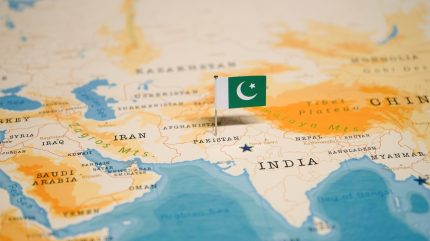
A major discovery of oil and natural gas reserves has been made in Pakistan’s territorial waters, reported a local publication, Dawn.
The hydrocarbon find is said to be so large that it could potentially alter the nation’s economic trajectory.
A three-year survey, conducted in partnership with an allied nation, has confirmed the presence of these resources, DawnNewsTV reported, citing a senior security official.
The geographic survey has pinpointed the location of the deposits and the relevant Pakistani departments have briefed the government on the findings.
The senior official described this as an opportunity to capitalise on the “blue water economy”, indicating that proposals for bidding and exploration are under consideration, which could lead to the commencement of exploration activities soon.
Despite the promising discovery, the official noted that the process of drilling wells and extracting oil could span several years.
Beyond oil and gas, the ‘blue water economy’ also encompasses a variety of other valuable minerals and elements that could be extracted from the ocean.
The official emphasised the urgent need for action to potentially reverse Pakistan’s economic fortunes as the country is grappling with a severe economic crisis.
Some projections rank this discovery as the world’s fourth-largest in terms of oil and gas reserves.
Currently, Venezuela is said to be leading in oil reserves, while the US boasts the largest untapped shale oil reserves. Saudi Arabia, Iran, Canada and Iraq also feature among the top five.
Former Oil and Gas Regulatory Authority member Muhammad Arif, in conversation with DawnNewsTV, advised cautious optimism, noting that there is no guarantee of finding the reserves as anticipated.
He highlighted that the discovery’s potential to meet Pakistan’s energy needs depends on the size and extraction efficiency of the reserves.
“If this is a gas reserve, it could replace LNG imports, and if these are oil reserves, we could reduce our reliance on imported oil,” he stated.
However, Arif warned that these are preliminary hopes until the reserves are thoroughly analysed and drilling commences.
He pointed out that exploration itself demands an investment of around $5bn (Rs1.39trn) and could take four to five years for offshore reserves extraction.
If exploration is successful, further investments would be necessary for well drilling and infrastructure development to extract and produce fuel.
Last month, MOL Pakistan made three gas discoveries in the TAL Block in the Kohat Plateau of Khyber Pakhtunkhwa.



